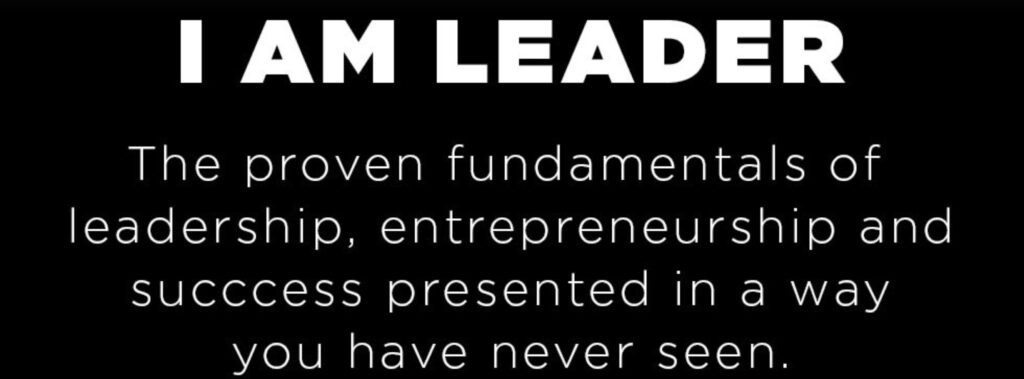What a crazy week, but who am I kidding? Every week for the last 3 months have been crazy weeks, especially for fixed ops! So a couple weeks ago, we read this list by Car and Driver of the three most influential cars of all time… but it was a terrible list. Christian and I both agreed, it’s pretty clearly just a list of the writer’s three favorite cars. So we asked you to post in the comments what you thought are the most influential cars of all time. We figure all the Service Advisors and Managers out there probably understand a lot more about cars than whatever out-of-touch journalist wrote that list…
…And we got a ton of excellent responses! Any one of them could have made it on the list, but we had to narrow it down to what we felt was right. These could honestly be in any order (Except number one, because how could it not be number one), but we feel like we put them in the best order we could. Way better than Car and Driver’s list, anyway:
- Dodge Caravan
The all-time famous Dodge Caravan was a game changer. People wanted to have more kids because they were like, “Hey, no longer are we restricted to just four kids in a car. Now we can have eight!” And that’s why the population went crazy. It is actually the main reason for world hunger after the 80s. And probably global warming, too. Though there is still some evidence out there that both of those things are the Parts Department’s fault.
- 1968 Pontiac GTO
Absolutely the coolest muscle car of that era.
- ’66 Dodge Charger
…Or any of the Hemi products like the ‘Cuda, the Challenger, or the Javelin. What was great about those cars was they got amazing gas mileage.
That was a joke. They got like a mile for every two gallons. I had a Charger once upon a time, and you could literally watch the fuel gauge go down from gas station to gas station, but they’re still great cars in other respects.
- ’65 Ford Mustang
This one was a real game changer. When it came out in the 60s, it brought about a big generational change in the car world.
We need to get some sort of medium on the show and commune with Lee Iaccoca’s ghost so we can ask him if he was responsible for that Mustang… But we want to bring back the younger Lee Iaccoca, not the old grumpy one. Then, we could ask him what the next game changing car would be.
- Ford Model T
This one was a no-brainer for both us and all of you smart listeners who voted for it, but I guess it was a bit much for whatever writer at Car and Driver. Obviously, all you wonderful people listening to Service Drive Revolution probably have IQs that are 15-20 points higher than most other shows. So the big $100 prize is going to the first person who responded with Model T, and everybody else who suggested it will get some free swag.
Speaking of our smart viewers, we also have to name the $100 winner of our favorite question this week, but before I get to that, we got an update regarding the one about personality profiles.
“Chris, thank you for answering my question. We actually did test all of our employees and, guess what? They’re even more introverted than me. Thanks again, Chris.”
In case you don’t remember, we answered a question last week from someone who was denied a service advisor position because they didn’t pass the general manager’s personality test, and I basically said that those tests were bulls**t. If you had all the best advisors there take the test, they probably wouldn’t even pass.
Personality tests don’t predict performance– performance predicts performance, and it’s not news to anybody. Those personality tests are a waste of money. Like many tests, you could easily manipulate the result. If you’re an introvert, just answer the questions the opposite of how you really would, and you’ll come out an extrovert. It’s that simple.
But anyways, I’m glad you found that out for yourself. With that, let’s move onto this week’s questions. Remember– if you send us a question, and we answer it on the show, we’ll send you a care package with some free swag. Great questions this week! Jeremy’s $100 challenge really paid off.
“What’s your opinion about dealerships using a check-in kiosk? We have one and the manager wants us to use it, even knowing it takes more time and it can’t check history.”
What do we think about kiosks for service advisors? The first thing I think is if you run the danger of getting replaced by a kiosk, you might want to get into selling mortgages or something.
Jeremy, however, disagrees. The way he sees it, kiosks are coming no matter what because they’re going to help dealerships and service departments bring a higher net to gross so the only way to beat it is to slay the kiosk dragon. Come in every single day, pre-print and get prepared for all the customers coming in the next day. Contact them via text, email, or phone call. Let them know that the check-in process is going to take between 10-15 minutes so you can pet the dog properly, answer all their questions, get their ticket written up properly, and just ensure that they have this magical, personalized, customized experience that’s tailored to them better than any machine can do.
Then after a month of that, two months, five months, your clientele is going to be lining up for you out the drive because they don’t want to see a kiosk, they want you! Consumers do want a faster experience, but you got to remember if you’ve ever seen a customer at a kiosk on their own, eventually someone gets stuck and that’s where they need a professional to come in so they can interface with a human being.
It’s just another tool. Use it when it’s appropriate, but find out how to slay the kiosk dragon.
“Hello, guys. I recently left a Japanese manufacturer after 15 years, and my complete dealership experience at the same store. I switched to a Jeep, Dodge, Chrysler, and RAM as a fixed ops director. What recommendations do you have to grow a store with a lot of potential and a lot of UIOs? I have many ideas, but love to listen to opinions to better a store.”
Jeremy’s first word of advice here is to get a coach. We know you said you love to listen to ideas and all that but what’s really going to separate you is your execution in how you create a remarkable service experience for your clientele, and a coach can help you get there faster and weed through the nonsense. It’s all right there on our online platform.
The customer experience has to be the first thing you need to figure out, and then market it in a different way. By marketing, I mean ‘buy 3 tires, get 1 free’ and all that. Tell a story, be engaging, be a part of the community! Go back to what this industry is about. Interacting with the community is a good way to build your RO count, too, but you have home field advantage. If you’re a dealership and you’re selling the car, you have home field advantage. It’s the experience and the customer’s feeling about you or us in that scenario that keeps them coming back so you need to manage their emotions and their perception of value.
“Chris, I need help knowing if I should pursue being a service advisor, BDC call center agent, or parts advisor. I’ve been in and out of positions at different dealerships but don’t know which one is my passion.”
I’m sure you can guess that ‘parts department’ was the first thing that caught our eye. It sounds to me like you might need something exorcised out of you. Like, you’re going to have to go to a shaman and do some sort of hallucinogenic thing to remove the Parts from your spirit.
In all seriousness though, you have to look at where your passion lies. Do you really have a passion for helping people? If you don’t, you don’t belong in the service department. That’s a deal-breaker. So if you like to help people, I would lean towards service.
For me, I grew up really, really poor so I wanted the job where the harder I worked, the more I could make from commission and it was all on me to perform. To me, it was about the pay plan and the investment of effort versus reward. That’s how I thought. I didn’t know any better.
Long term, service might have a more stable future than being on the sales floor. We don’t know how things are going to change with sales coming up in the next 5-10 years, but in my training I talk about staying in one place, building your clientele, building your key throwers, and creating the trust fund that you deserve.
So the $100 winner is J Villa from YouTube, who asked the question featured in what’s easily our longest Drive By to date and, man, I got more comments on that. People text me directly saying that it really affected them, which to me was feedback that the leadership training I’m doing is in the right vein because I’m going pretty deep on some things there that I know some people would be scared of. I was actually thinking today that I’m going to have two versions of it: I’m going to have the light version and then I might have the version that people can ask to turn on in the platform, but not everybody’s going to want to go there. Some people will probably be scared of that, but Jay’s question really did let me know that I was on the right track.
So thank you, J, and congratulations. You’re getting $100, some swag, and some books, too.
Now, I’m going to talk about the difference between professionals and amateurs. This is something that Jeremy was real fired up about on the show.
- Not caring
There are some minor things that can tip you off whether someone is an amateur and a professional. Jeremy’s a strong believer in having his team do a final quality check to make sure that everything, and we mean everything, is alright before giving it back to the customer. What an amateur service job might look like is a vehicle that’s supposedly ready for delivery but the low oil light is on when doing your final test route, so you open the hood and check the oil and there’s no oil on the dipstick… The car was just in the shop so what’s wrong with that picture?!
The professional technician or service advisor genuinely cares about the customer and the financial well being of that vehicle, and they want to make sure that it’s perfect when it leaves. Just doing the job that’s on the repair order is not enough. You’ve got to go beyond that and take pride in what we do so it’s like magic when the customer gets their car back. It feels different, it sounds different because you took care of that car and did the right thing by paying attention to the details.
- Attention to details
It’s the little things like wipers or washer fluid. You have to think of yourself a little bit different and understand the depth and the amount that you have to care about something in order for it to be special and really be a career, right?
One of the number one things we look at when a car’s ready for delivery but it’s not staged is if the rear wiper blade is hanging down. The rear wiper is a key detail that can tell you that a store’s CSI scores are a lot lower than the ones that actually take care of that.
And fingerprints, too. How many times have we done $5,000 worth of work on a customer’s car and all of it has been done right and great and the car runs better, and the customer comes back in and points out that there’s greasy thumbprints on the headliner or whatever?
Sit in the customer’s driver seat when the car’s ready and just look around. Be observant of the car and its condition, and don’t forget your disinfectant.
Radio stations, too. You shouldn’t touch the radio when you’re servicing but if for some reason you get possessed by the spirit of Parts Department and you can’t resist tampering with the customer’s radio, you don’t want a soccer mom to get in the car and it blasts heavy metal or mariachi music. Unless she already had it set to that station, of course…
- Practicing
The next big difference between a professional and an amateur in any field is practice. How many times do you see service advisors practicing outside of working hours? I rarely see it, and it’s important to keep your skillset at a high level and recognize when you’re out of practice.
- Investing in yourself by having a coach and training
Next one on the list is no coach and no training. What books are you reading? What training have you done to get better? Whether you’re an advisor, a manager, a tech, it doesn’t matter. There’s so many different areas you can learn in that there’s always something to learn!
- Making money instead of earning money
Another one is you make money instead of earning money.
What that means is an amateur does a job where you’re exchanging time for money vs. a professional doing a job where you’re exchanging results and passion for money. You actually really care about what you’re doing, and then the money takes care of itself.
It’s the difference between a salary or hourly employee vs. somebody who’s actually vested in the result and their outcome. If you’re just focused on doing the job and making money, the customers are going to be able to tell that experience apart from someone who’s really focused on making it a remarkable experience every time.
The last one on our list of how to tell an amateur from a professional is professionals track results– They know their numbers. They’re looking at their measurables all the time. They know if they’re winning or losing.
So those are 5 ways to tell an amateur from a professional. Thanks to you guys for tuning in, and we’ll see you next time on Service Drive Revolution!










